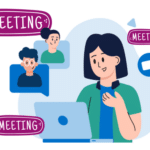
Psychology of Selling
The human brain is amazing.
We can break it down even further when it comes to making a purchasing decision.
People buy a product or service for two reasons:
1. To solve a problem (Need – Logic)
2. It brings them joy (Want – Emotion)
A recent Harvard study showed that 95% of our decisions are driven by our subconscious and one of the languages that our subconscious speaks fluently is emotion. Logic on the other hand is driven by both our conscious and subconscious and is a little more complex.
What is Sales Psychology?
Think about the last time you purchased a product or service. Did you ponder the decision and rationalise that purchase, or was it more of an emotional decision? The vast majority of people, when making a purchase decision, buy on emotion and then later rationalise their decision with logic.
How do we speak to the emotional and logical brain of our customers?
1. Pain and Gain
Observe your customers’ communication patterns and identify subliminal cues that elicit an emotional response. This allows us to acknowledge the pain they may be feeling caused by a problem that requires a solution and the pleasure or joy they desire. The reality is, humans are inherently motivated to protect themselves: find a solution and benefit from the reward.
A great salesperson can speak both languages.
They have the skill to direct the customer away from the pain and steer them toward the gain – in the majority of cases, winning the deal.
2. Identity
Communicate with your customer on an emotional level to demonstrate how your business is aligned either with an identity they already have or an identity they aspire to be. They might want to be seen as an industry expert, a thought leader, an innovator; identity is very important.
What do they need to develop, obtain or change in themselves or their business to gain this identity? How do they want to be perceived by their industry? For some, the identity of the business can be more significant than the business itself.
3. Delight
The use of emotion is extremely effective in the marketing messages of your brand. Delight is creating an emotional response that generates intrigue, interest and fascination. The desire to learn more and dig a little deeper.
Delight comes in many forms; a social media post, an email campaign, an informative publication or an educational resource. When we see something we like that sincerely generates value we tend to spring in action and make things happen.
Creating an emotional response, lights up those pleasure centres in the brain so a customer is more likely to purchase.
People buy from people.
4. Evidence
The use of logic and the act of justification is generally related to evidence. Understanding what your customer needs to lead them in the right direction.
What details do they require?
Statistics?
Clinical data?
Specifications?
Or it could be simply a review or testimonial.
These are the requirements for your customer to make a logical decision to purchase.
Providing evidence and demonstrating results lowers the risk of a bad decision. Remember, we naturally gravitate towards protection, so any kind of evidence based reassurance will encourage a purchase.
5. Behaviour
Develop the skills to trace the pattern of your buyers behaviour and influence a person to think like yourself. People want to be understood, they want to know that you care about them and not just the sale. People buy from people.
Successful sales professionals have these skills in abundance. They can tap into their customer’s emotions, have a clear understanding of the problem and provide a solution based on logic. They can also articulate the emotional and logical loss by not purchasing your product.
Conclusion
Learning more about the psychology behind human behaviour can give an organisation a distinct competitive advantage. The more you study people and understand the intent behind their actions, the more you will be able tap into their needs and wants.
It also creates a sense of your own behavioural awareness and when to adapt to your customer.
Knowing what they need, why they need it, how they need it and when they need it will get sales flowing your way in no time.
The use of psychological techniques in sales and negotiation is a fascinating topic and the knowledge and strategies it provides can be immensely beneficial to salespeople in every industry.
The psychology behind any kind of decision making relies on two factors: Emotion and Logic.






